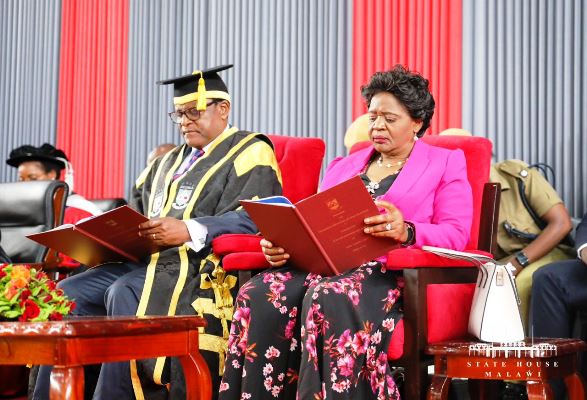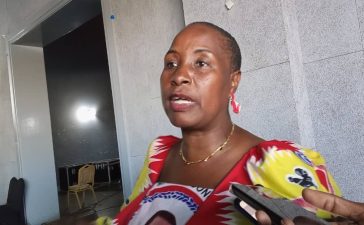Malawi’s President Lazarus Chakwera, asserting that the Malawi University of Science and Technology (MUST) holds a preeminent position in the nation’s academic landscape, has encouraged the leadership of MUST to contemplate the establishment of a research center focused on Climate Change.
The President put forth this proposal while overseeing the fourth commencement ceremony held at the university’s Thyolo campus on Friday. Chakwera’s suggestion was prompted by the recurrent climate change impacts that are inflicting widespread hardships on the Malawian population nearly every year.
“…I look forward…to see this University play a proactive and leading role in the application of climate change related sciences. This is an urgent and pressing matter for us as a nation. In the past four years alone, we as a nation have suffered no less than five climate-change induced natural disasters and at least one public health emergency precipitated by climate change events. By all indications, these calamities are set to continue with ever increasing intensity and severity, and it will not do for us as a nation to sit idly by and wait to be caught unawares and unprepared as we have done in the past.’ said Chakwera.
He continued:
“As a leading University in Climate Science, MUST needs to lead our response. Toward that end, I urge the leadership to consider initiating a Climate Change Research Centre here that brings together experts from various disciplines to develop innovative solutions that promote sustainability and resilience in the context of Malawi’s unique vulnerabilities to climate disasters.”
According to Chakwera’s vision “this centre can then collaborate with government agencies and non-governmental organizations to implement practical interventions that safeguard our environment and protect the most vulnerable communities. This Climate Change Research Centre would actually go well with the establishment of a Community Impact Program, encouraging students, faculty, and staff to actively participate in projects that address pressing societal challenges emanating from such disasters. These are the kinds of innovation that will keep MUST on the frontlines of national development and sustain its supremacy as a bastion of prestigious learning.”












